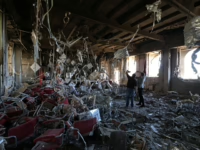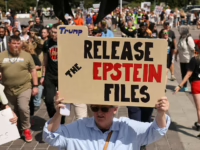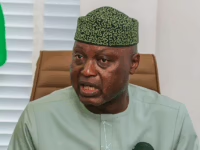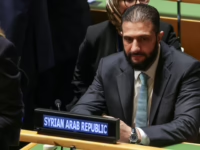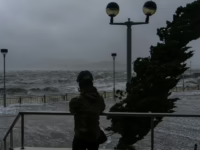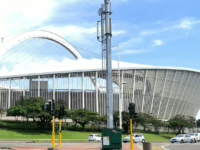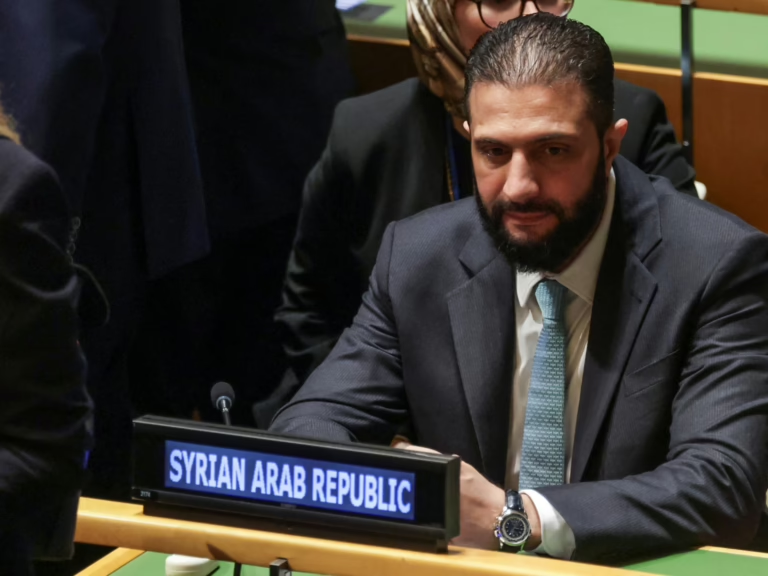Syria’s Ahmed al-Sharaa expresses optimism for a peace agreement, cautioning about regional instability amid Israeli efforts to divide the nation.
Israel is nearing an agreement to de-escalate tensions with Syria, following Syrian President Ahmed al-Sharaa’s admission that his nation feels threatened by Israel’s persistent military actions since the regime change last year.
Tom Barrack, the U.S. Special Envoy for Syria, revealed on Tuesday that the proposed deal would involve Israel ceasing its attacks, while Syria commits to refraining from deploying heavy machinery or military equipment near their shared border.
Negotiations between the two countries are reportedly progressing “in good faith,” according to Barrack, although finalization has been delayed due to the observance of Rosh Hashanah, the Jewish New Year. This initial pact is envisioned as a foundational step toward a broader security arrangement.
Prior to Barrack’s remarks, President al-Sharaa, whose forces ousted the long-standing Assad regime in December, expressed cautious optimism about reaching a security agreement, emphasizing that Syria has not instigated conflicts with Israel.
“Our fear is directed at Israel, not vice versa,” al-Sharaa stated during a Middle East Institute event in New York.
He warned of significant dangers if Israel delays negotiations and continues to violate Syrian airspace and territorial sovereignty.
“Neighboring Jordan faces mounting pressure, and any discussions about dividing Syria would destabilize Iraq and Turkey as well, setting the entire region back to square one,” he added.
Marking a historic moment, al-Sharaa is set to become the first Syrian leader in sixty years to address the United Nations General Assembly this Wednesday.
Threats of National Disintegration
The longstanding hostility between Israel and Syria dates back decades, intensifying after the 1967 Arab-Israeli conflict and Israel’s occupation of the Golan Heights.
Following Assad’s removal, Israel has actively undermined Syria’s efforts to stabilize, disregarding the 1974 ceasefire by targeting Syrian military positions and advancing troops to within 20 kilometers of Damascus.
Al-Sharaa disclosed last week that Israel has launched over 1,000 airstrikes and conducted more than 400 ground incursions into Syrian territory.
Israel justifies these operations as measures to combat terrorism and protect the Druze community, particularly in the southern Suwayda region, which experienced sectarian clashes in June. Nonetheless, Israeli strikes have also hit central Damascus.
Critics argue that Israel’s strategy aims to fragment Syria, maintaining its weakness to assert regional dominance.
During the United Nations General Assembly, al-Sharaa reiterated his appeal to the United States to lift sanctions on Syria, which he says hinder reconstruction efforts. He also engaged in discussions with U.S. Secretary of State Marco Rubio this week.
Meanwhile, Israel continues to lobby U.S. officials to sustain these sanctions.
In a notable encounter, al-Sharaa met with former U.S. General David Petraeus in New York. Petraeus, who once detained rebel leaders during the Iraq invasion and later served as CIA director, conducted the interview amid the UNGA sessions.



